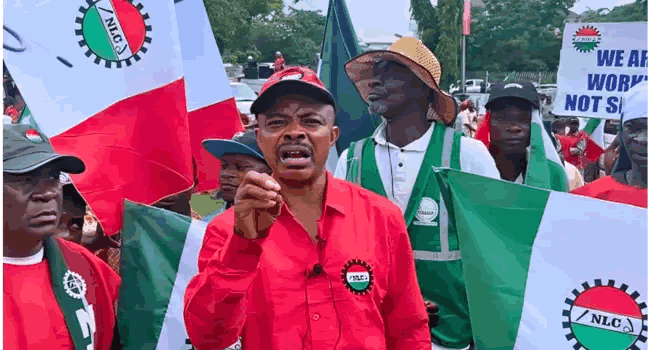The nationwide strike organized by the Nigeria Labour Congress (NLC) and the Trade Union Congress (TUC) has led to significant disruptions in businesses and essential services, including schools, hospitals, and power supply. This industrial action is a response to unresolved issues surrounding electricity tariff hikes and the lack of agreement on a new minimum wage.
Despite last-minute interventions by the National Assembly, which aimed to prevent the strike, negotiations failed, leading to a comprehensive shutdown across various sectors. From Rivers State in the South-South to Kaduna in the North-West, economic activities have ground to a halt.
Airports in major cities like Abuja, Port Harcourt, Kaduna, and Lagos experienced chaos as aviation workers, represented by the Association of Nigerian Aviation Professionals (ANAP) and the National Union of Air Transport Employees (NUATE), blocked access to airport facilities. This resulted in passengers being stranded and having to walk to the terminals, though flights were not disrupted thanks to heavy security presence.
In Lagos, similar scenes unfolded with passengers and staff being denied access to the airport terminals, leading to significant delays and frustration. Meanwhile, Abuja Airport witnessed an unusual quietness with empty terminals and absent airline staff, severely impacting normal operations.
The strike, according to NLC President Joe Ajaero and TUC President Festus Osifo, will continue until the government takes concrete steps to address the core issues affecting workers, such as high energy costs and inadequate wages. They have criticized the government for its negotiation tactics, accusing it of trying to divide the unions rather than addressing their demands.
As the nation grapples with the strike, the business community, represented by the Organized Private Sector of Nigeria (OPSN), has raised concerns about the economic toll and urged both the government and labour unions to find a swift resolution to prevent further damage to Nigeria’s fragile economy.
With the government and labour unions still in discussions, Nigerians are hopeful for a resolution that will restore stability and productivity across the country.


